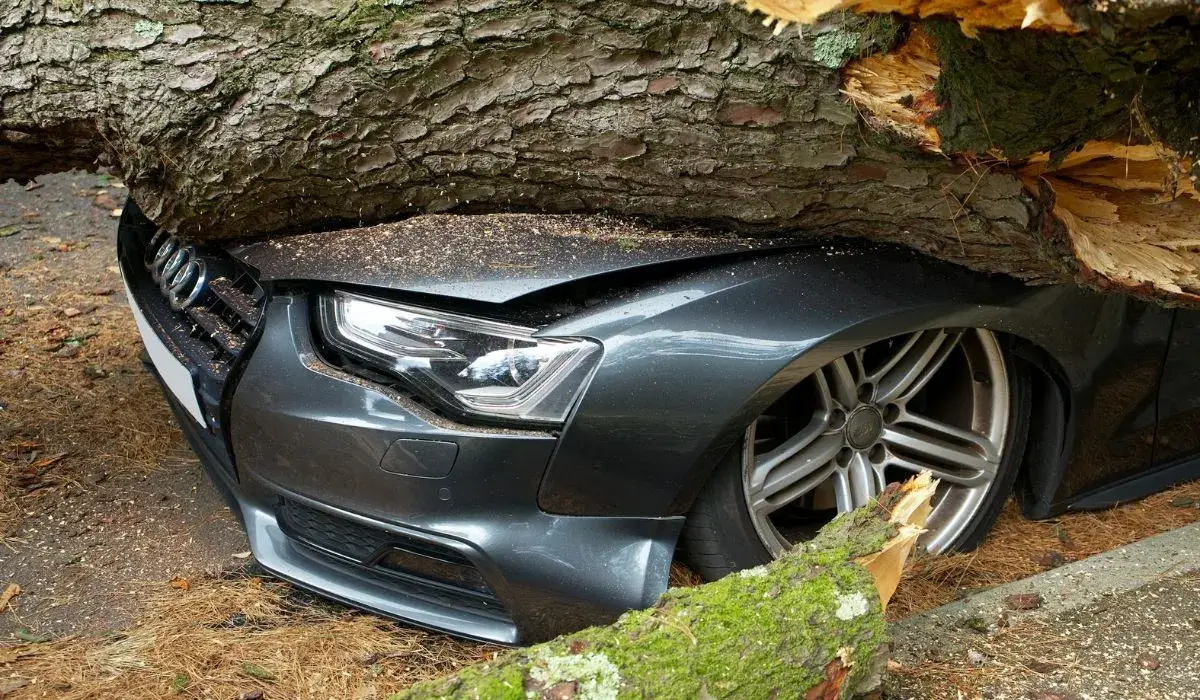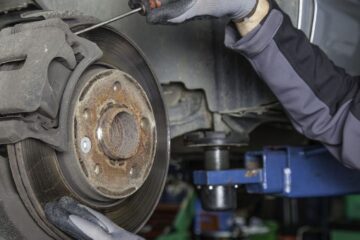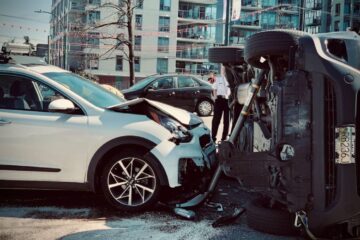Ever sat in traffic and wondered what would happen if someone rear-ended you? One moment you’re heading home, the next, someone crashes into your bumper while scrolling their phone. Now you’re sore, confused, and bracing for insurance headaches.
This story isn’t unusual—it happens every day, on highways and backroads alike. After the crash, you’re left with more questions than answers. What if that soreness sticks around? Who covers the bills or missed work?
That’s when legal help becomes more than documents—it becomes support. It’s about knowing your rights when others try to avoid blame.
In this blog, we will share why legal support after a road accident isn’t just helpful—it’s often essential. We’ll also look at how today’s driving culture and legal system shape the way we respond when things go wrong.
The Messy Aftermath of a Crash
The sound of metal against metal doesn’t just leave dents. It leaves a trail of confusion. After a crash, your first thought might be: “Is everyone okay?” That’s human. But what happens after the ambulance leaves? What happens when the adrenaline wears off and the pain starts?
That’s when real problems begin. Insurance adjusters call with friendly voices. But behind the tone is a clear goal: settle fast and cheap. Their job isn’t to look after your well-being. It’s to protect their bottom line.
Meanwhile, you’re left trying to decode paperwork. Medical bills arrive. You miss work. Maybe you even lose sleep because your neck hasn’t stopped hurting since Tuesday. The process is more overwhelming than the accident itself.
In today’s world, where we’re used to everything moving fast—Amazon deliveries, fast food, viral videos—the legal process still crawls. That’s why many people skip it. They want a quick fix. But fast doesn’t always mean fair. That’s where having a reliable auto accident lawyer becomes a game-changer.
This kind of legal help can tell you what to expect. They’ll explain what’s fair, what’s not, and how to stand your ground. They’re not magicians. But they know how to ask the right questions and get you the right answers. More importantly, they stop you from saying things that could hurt your case later.
The Bigger Picture: Driving in Modern America
Let’s take a step back. Car accidents aren’t just personal problems—they’re a national concern. Even though traffic deaths in the U.S. dropped a bit in 2024, more than 39,000 people still lost their lives in crashes. That’s like an entire small town wiped out in one year.
It’s the lowest number since 2020, sure—but it’s still higher than it was before the pandemic. In 2019, that number was closer to 36,000. So while it may look like progress, we’re still far from safe.
Why are roads still so deadly? Experts blame faster speeds, distracted driving, and more people losing their temper behind the wheel. The pandemic may be behind us, but the chaos it brought to the roads hasn’t gone anywhere. Road rage is still riding shotgun.
We live in a time where people multitask behind the wheel like they’re at a desk. One hand on the wheel, one hand holding a burrito, eyes bouncing between the road and their phone. And yet we act surprised when collisions happen.
It’s not just the drivers. Roads aren’t getting safer. City infrastructure isn’t built to handle the surge in traffic and oversized vehicles. And insurance companies? They’ve become expert jugglers—tossing around numbers, downplaying injuries, and avoiding responsibility like it’s an Olympic sport.
In this setting, trying to handle a crash by yourself is like walking into a courtroom with a blindfold. The odds aren’t in your favor. Legal support doesn’t just protect your rights. It holds the system accountable.
What Happens Without Legal Help
Let’s paint a picture. You’re hit by a driver who runs a red light. Your car is totaled. Your back hurts. But you figure insurance will take care of everything. You give a statement. You go to a doctor. You wait.
Weeks pass. The insurance company offers a small sum. Barely enough for car repairs, let alone treatment. You feel pressured. They remind you that dragging things out could affect your payout. They nudge you to settle. So, you sign.
Months later, your back pain worsens. You need surgery but it’s too late. You have already settled. You waived your right to future compensation when you signed those forms. And now you’re stuck.
That story isn’t fiction. It happens every day. Not because people are careless, but because they’re overwhelmed and uninformed. A good legal advocate would’ve seen the red flags. They would’ve slowed things down, made sure every option was explored, and likely gotten a much fairer outcome.
How Legal Guidance Changes the Game
Having someone legally trained by your side is like having a GPS when you’re lost in the woods. You might get out eventually without one, but the journey will be longer, riskier, and possibly more damaging.
Lawyers don’t just file forms. They gather evidence, talk to witnesses and handle the constant back-and-forth with insurance companies so you don’t have to. They make sure your side of the story is heard and understood.
More importantly, they know what your injuries are worth. Not just in terms of dollars, but in how they affect your life. That kind of knowledge matters when others are trying to minimize your pain.
The legal process can feel intimidating. But the right support turns it into something manageable. Even empowering. It helps you regain control in a situation that feels completely out of your hands.
A Glimpse at Recent Headlines
Take the recent surge in multi-vehicle pileups. States like Texas and California have seen wrecks involving dozens of cars. Fog, ice, distracted driving—they all play a role. And with more people commuting again post-pandemic, the roads are crowded, fast, and unforgiving.
In many of these stories, one trend stands out. People who sought legal support often got the medical treatment and compensation they needed. Those who didn’t? They got stuck with bills, delayed treatments, or denied claims.
That divide isn’t just about luck. It’s about knowledge. It’s about who had someone protecting their interests when the system tried to move on without them.
The bottom line? Road accidents happen fast. The impact, though, lingers – physically, mentally and, of course, financially.
Having legal support doesn’t mean you’re out for revenge. It means you understand the system isn’t built to help you unless you ask—loudly and with the right words.
A crash can leave you vulnerable. But it can also make you smarter, stronger, and more aware of your rights. Legal help isn’t about being dramatic. It’s about being prepared. And in today’s fast-moving, distracted-driving, claim-denying world, that preparation makes all the difference.
Because when life sideswipes you, having the right person in your corner isn’t a luxury. It’s a necessity.




